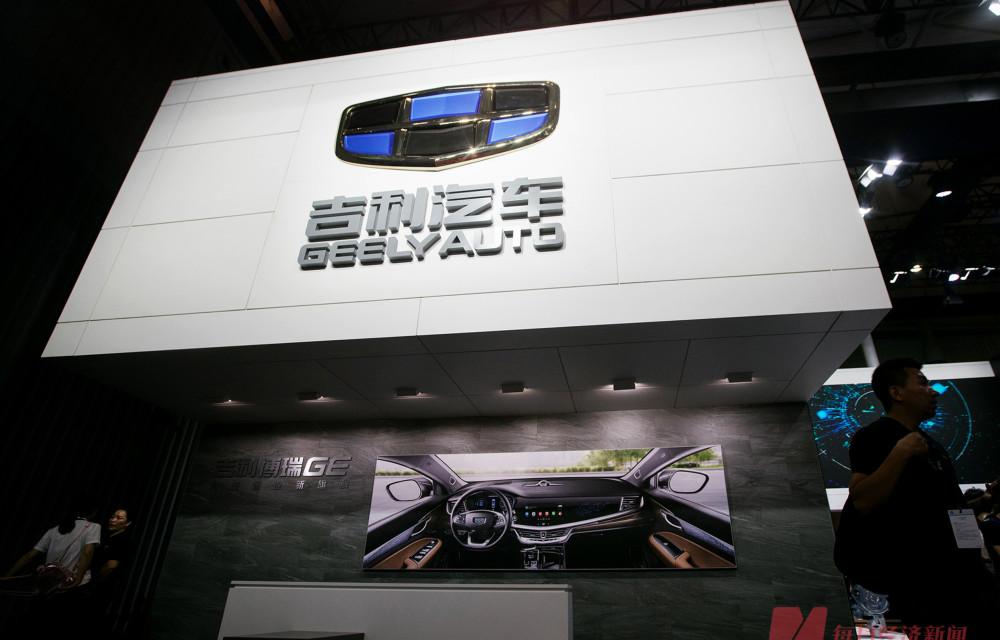Per reporter: Pei Jianru Per editor: Sun Lei
The territory of Chinese car companies "going out" is expanding.
A few days ago, according to the Russian Satellite News Agency, the head of the Russian "Open Bank" automobile association, Malina Denbitskaya, said that the sales of Chinese cars in the Russian market in 2023 may reach 300,000 units. The share of Chinese branded cars in the Russian market could double compared to 2022.
Relevant statistics show that in 2022, the total sales of Chinese brand cars in the Russian market will be about 123,500 units. According to data disclosed by Russian analyst agency Autostat, in 2022, the share of Chinese cars in the Russian market increased from 9% to 37%. Not only that, the price of Chinese brand cars in the Russian market has increased by 53%~73% in 2022. Correspondingly, the market share of Korean automobiles fell from 28.3% to 11.2%, that of European brands fell from 28.3% to 7.3%, that of Japanese automobiles fell from 17.9% to 6.6%, and that of the United States fell from 1.1% to 0.9%.
Autostat previously said that in 2022, Russians bought a record number of Chinese-branded cars. Among them, Chery, Haval and Geely are the most popular in the Russian auto market, accounting for 82% of all Chinese brand cars sold in the Russian market.

Photo source: Photo by Zhang Jian, reporter (data map)
According to previous reports by Russian media, in September 2022 alone, Russians bought 12,400 new cars of Chinese brands, worth about 35.9 billion rubles (about 4.3 billion yuan), accounting for about 38% of the total spending of Russians on new cars that month.
In fact, in 2022, due to the epidemic, geopolitical and other factors, the performance of the Russian auto market was sluggish. What is more serious is that many multinational car companies have announced their withdrawal from the Russian market.
For example, last October, Russia's Ministry of Industry and Trade announced that Nissan Motor sold all of its assets in Russia, including research centers in St. Petersburg, sales centers in various locations and sales offices in Moscow. Among them, Nissan's business in Russia was transferred to the Central Scientific Research Institute of Automotive Engines (NAMI), and after-sales service and parts supply were handled by Russian automotive company AvtoVAZ, while Nissan Russia can also buy back its own assets in the next 6 years.
Prior to this, Toyota announced in September 2022 that it would stop producing vehicles in St. Petersburg, Russia; Renault Group also sold its entire assets in Russia in May last year, selling 100% of its shares in Renault Russia to the Moscow city government, while its nearly 68% stake in AvtoVAZ was sold to the National Automotive Engineering Research Institute (NAMI).
According to incomplete statistics, Volkswagen, Honda, Ford, BMW, Mercedes-Benz, General Motors, Volvo, Jaguar Land Rover and other car companies have announced the suspension of car exports and sales to Russia, and many car companies have stopped production at their local factories in Russia.
Image source: Visual China
Behind the "survival with broken arms" of multinational car companies is the shrinking sales of new cars in the Russian market. According to data released by the European Business Association (AEB), the total sales of Russian cars in 2022 will be about 687,400 units, down 58.8% year-on-year. Alexey Kalitsev, chairman of the AEB Automotive Committee, said the issue of sanctions and unprecedented pressure on the Russian market on all fronts had affected the country's automotive industry.
Institutional analysts believe that Russia's heavy industry is highly developed, but the technology and equipment in the field of automobile manufacturing are relatively backward, the entire automobile industry is relatively weak, and overseas automobile brands have always occupied a dominant position in the market. In 2022, due to the outbreak of the Russian-Ukrainian conflict, multinational car companies have withdrawn from the Russian market, during this period, China, as a close neighbor of Russia, including Haval, Chery, Geely, etc. car brands have accelerated to enter the market.
Specifically, in the Russian auto market, the Chinese brand with the largest sales in 2022 is Chery, with sales of about 39,500 units, ranking fifth in the Russian market. Among other Chinese brands, Haval ranked sixth; Geely Auto ranked eighth; Chery's Xingtu brand and Changan Automobile ranked 13th and 19th respectively.
On January 10 this year, Zeekr 001, the first model of Zeekr has opened pre-sale in the Russian market, with a pre-sale price of 6 million rubles (about 600,000 yuan); Lantu Motors also started selling new cars in the Russian market in November last year; Skyworth Auto entered the Russian market in June 2022.
According to the plan, Xingtu and Oumunda plan to sell 200,000 vehicles in the Russian market in 2023; Geely Automobile plans to double its sales in Russia by 2023. Earlier, the Russian Satellite News Agency reported that Renault's showroom in Perm has been taken over by Oumunda, and at the end of 2022, three car dealers in the Perm region obtained the dealership right of Oumunda. At the same time, Oumengda plans to launch two new models to the Russian market by the summer of 2023.
AEB predicts that Russian car sales will increase by 12% to about 770,000 units in 2023. Autostat believes that the market share of Chinese brand cars is expected to reach 50% in 2023.
Daily economic news